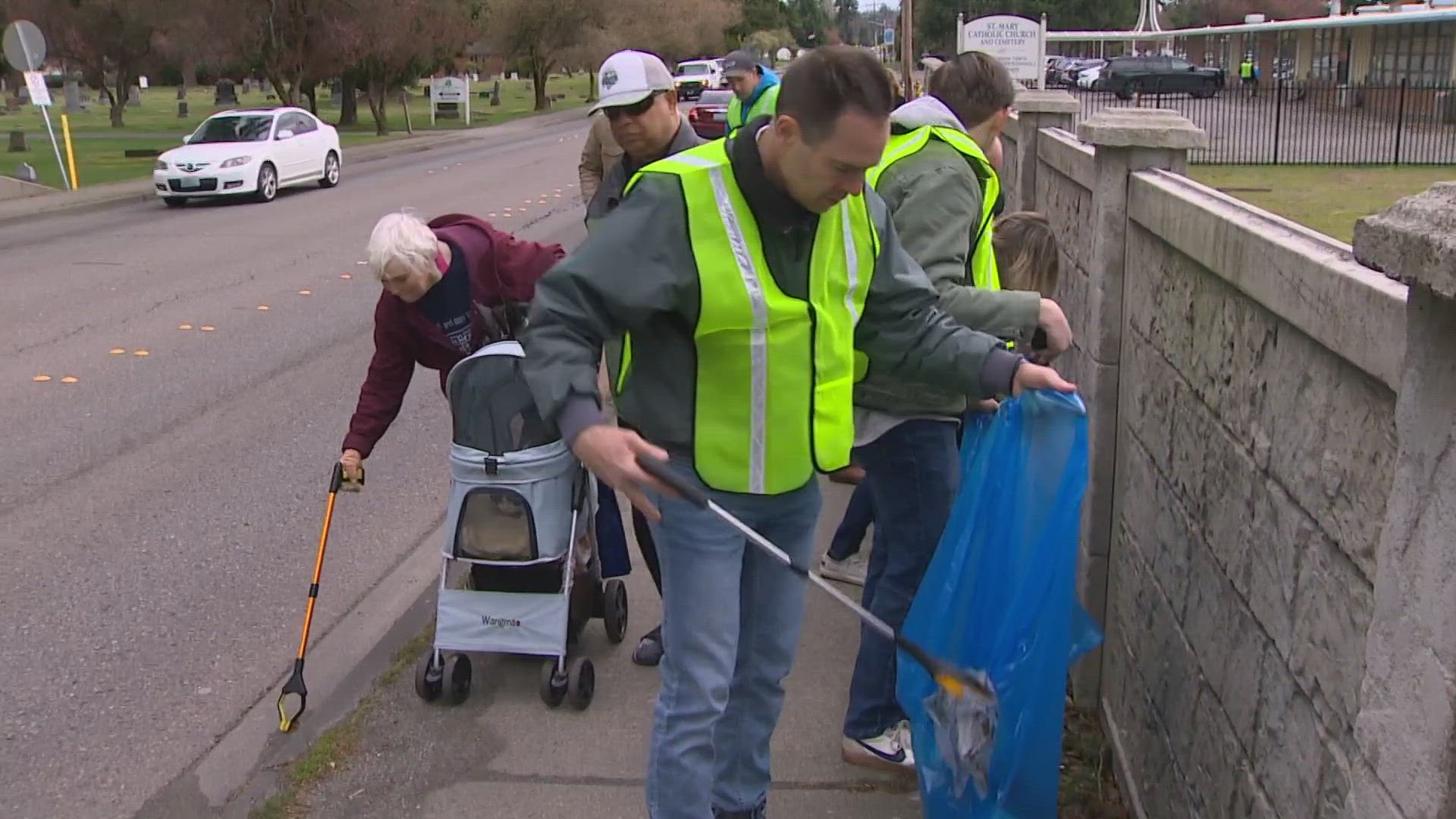MARYSVILLE, Wash. — Toni Kief is Marysville's litter lady, though she calls herself a different name.
"Oh, I'm just an old bag woman," she chuckled.
With bag in hand, Toni walks her neighborhood streets in Marysville, picking up trash and pushing a stroller carrying her cat, "Poppy."
Since the start of the COVID-19 pandemic, Toni has single-handedly collected more than 1,300 bags of garbage in Marysville. To her, it's an unfortunate necessity.
"We live in this beautiful concert of a world that's so beautiful and then you get that bad note screaming at you," she said.
The City of Marysville spends 60 to 80 manpower hours every week picking up trash. City leaders say their resources are stretched so thin they can't keep up.
Marysville is far from the only city in Washington with trash troubles. According to the state's Department of Ecology, more than 26 million pounds of trash are dumped along Washington freeways every year. In 2022, that translated to 73,580 pieces per mile. The state spends more than $12 million every year to remove trash, but it's a losing battle.
In Marysville, Toni has inspired what's called the Marysville Litter League. It's a group of volunteers that will fan out across the city, picking up trash in their own communities.
"If the city can tackle the main corridors and we can get a bunch of volunteers keeping their side streets clean, that's where we can tackle a much larger area," said Marysville Mayor Jon Nehring.
The city is providing free clean-up kits with gloves, vests and specially colored bags that will be picked up at no additional charge with weekly garbage.
Toni recently received Marysville's "Volunteer of The Month" award. She said when she started walking she pictured herself as a dot on a map, then a dot on the planet, then a dot in the universe.
"I just want to do whatever I can to take care of my little dot," she said.
Toni keeps walking her neighborhood, bag in hand, knowing she's no longer walking alone.
"I actually started to tear up," she said, surrounded by fellow volunteers, "because it's so easy to make a difference. If you see it, you fix it. Any little thing you do will make this place better for the kids that come."

